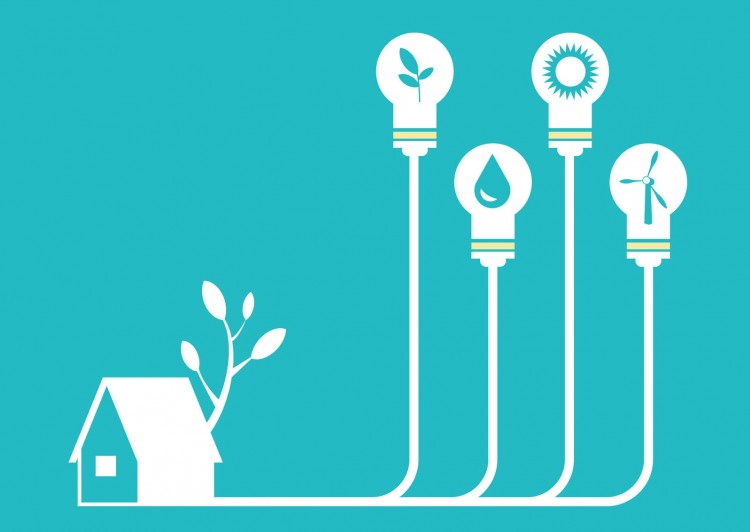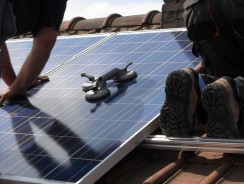
When deciding whether to buy your own home or to stick with renting, one of the biggest considerations is customization. While there are virtually no limits to what you can do with a house that you fully own, you can’t make permanent changes to a rental without losing your security deposit or angering your landlord.
This is a pretty big roadblock for renters who might want to live more sustainably by using cleaner energy like solar power, as opposed to electricity sourced from burning fuels. It’s not like you can just have solar panels installed on the roof of your rental building, if you even have access to it.
Getting Solar Without Installing Roof Panels
Fortunately, installing panels on the roof is no longer the only way you can tap into the world’s most renewable and sustainable power source. In certain areas in the U.S., companies like choosesolar are making solar energy more accessible by building and managing shared solar farms.
These shared solar farms generate electricity using industrial-grade panels so customers needing their service no longer have to install their own solar panels at home.
How Virtual Net Metering Works
The core idea of shared solar is not complicated to understand. It’s basically a system where the solar energy is harvested and transformed into electricity in a remote location before it is transmitted to your house to be used for residential needs.
But what most people find difficult to understand is how they will be charged for their solar power consumption when they do subscribe to a community solar program. Well, the first thing you have to know is that you won’t be receiving a separate bill from the community solar company. Instead, the excess energy generated by your off-site panels will be credited and applied to your home credit bill.
Think of it like you actually bought solar panels using the amount you paid to subscribe to the shared solar project. But instead of taking the panels home and installing them on the roof, you set them up on a farm for the solar company to look after and maintain -- while you get the enjoy all the same benefits of rooftop solar. The same net metering system applies for billing, only this time it’s virtual because again, the panels are not with you.
Why Community Solar Works for Renters
As discussed in the first part of this article, there are hard limits to what renters can do to the property they’re renting. This makes community solar the only viable way to get solar power unless you’re ready and willing to build your own solar system -- which you can keep inside the actual rental unit.
The best thing about community solar is that it will not require you to install anything on your rental property -- not even new wires. Everything can stay as it is and your landlord won’t have anything to say or charge you for.
If you are the landlord, you may also benefit from signing your rental up for a shared solar program. This way, you can attract planet-conscious tenants without giving them or yourself additional burdens in terms of maintaining on-site panels. In fact, you should consider access to solar energy as one of the best ways to improve the value of your rental property in 2021 and beyond.
Final Thoughts
There is no doubt that clean energy is the power of the future. Now that more and more people are witnessing the impact of climate change, the planet is on a collective mission to turn its back on greenhouse gas emissions, including those produced when burning fossil fuels to create the traditional electricity we use.
As solar power gains more ground, you don’t have to feel FOMO as a renter just because you are not allowed to install rooftop panels on the property you’re renting. Now that you know what community solar is all about, you know there is a very good way to power your rented property using the most renewable power source there is.









Author
Homesgofast com
Homesgofast.com is an international real estate portal and news source for Google news. Publishing international real estate, finance, homes and travel-related news and blogs for a targeted audience since 2002. Each news item is circulated to thousands of potential readers each day and is also available to the millions of people who sign up for Google news alerts. Find homes offered for sale and to rent direct from owners and some of the best real estate agents from over 35 countries